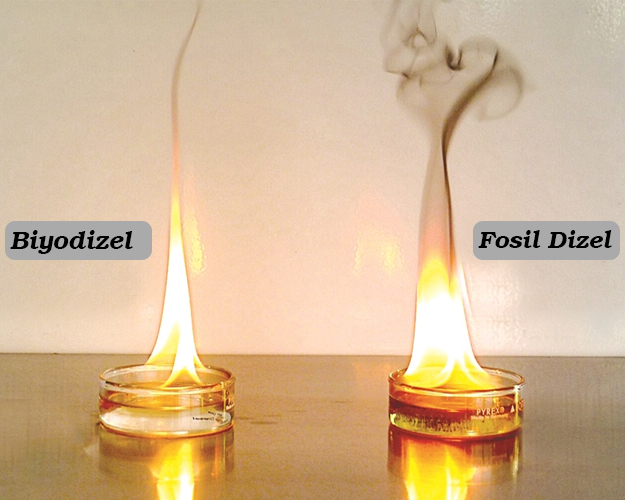
To get information about BIODIESEL produced at Degam facilities;
You can contact us on +90 850 283 34 26
You can find our other contact information on our contact page.
biodiesel
What is biodiesel?
Biodiesel is the product obtained by the reaction of hemp, canola, soybean, sunflower, domestic oils with alcohol types such as methanol and ethanol with the help of a catalyst. The word 'bio' in biodiesel means the fuel is biological and renewable and 'diesel' indicates to the fuel used in diesel engines.
How to get biodiesel?
Nowadays ,the most common method used for biodiesel production is reciprocal esterification, in other words, transesterification. First, raw vegetable oils are reacted with alcohols such as ethanol and methanol with a catalyst. Alcohol and catalyst are mixed first in this process. Then, vegetable oils are added to this mixture and the system is closed to the atmosphere and the reaction is started. Biodiesel is obtained as a result of these processes. Closing the system to the atmosphere is significant for prevention of alcohol loss. As a result of the reaction, biodiesel and glycerin is released. Due to the fact that the density of glycerin is significantly higher than the density of biodiesel, these two substances are diverged from each other by the difference in gravity. Glycerin, on the other hand, is distilled to increase its purity to 99%, can be used in the pharmaceutical and cosmetic industry.
☆☆Biodiesel can be sold to distribution companies and exported abroad. It is not possible to sell it otherwise.
WHAT IS THE DIFFERENCE BETWEEN DIESEL AND BIODIESEL?
• Diesel and biodiesel, are the two carbon-based organic products obtained fron different sources. Diesel is caused by the process of decomposition of oil/crude oil, while biodiesel is obtained from herbal oils.
• The main difference between them is that diesel is an exhaustible, non-renewable source of energy, while biodiesel is the opposite.
• The disadvantgae of diesel is that when its it compared to other fuels, it poses a much greater risk to the enivornment. Also, another significant disadvantge is that it is in the process of depletion. The combustion of diesel fuel increases the harmful release of carbon, sulfur and nitrogen oxides into the atmosphere.
• Biodiesel is a renewable energy source. In engines designed to run on conventional diesel fuel, it can be used without the risk of causing any damage to the engine. In addition, biodiesel emits minimum levels of air pollution.

The Status of Biodiesel in Turkey
• Turkey conducted its first study on biodiesel before the EU in 1934 at the Atatürk Forest Farm under the name "The Use of Vegetable Oils in Agricultural Tractors".
• Biodiesel in Turkey was brought up to agenda in the early 2000s under the influence of developments in the World.
• Studies at universities have developed rapidly.
• in 2001, the "Biodiesel Working Group" was established at the Ministry of Industry and Trade.
• Turkey ranks second in the World in terms of installed capacity in biodiesel with 1.5 million tons after Germany.
• Turkey is capable of meeting its installed capacity, especially the amounts required by the EU for its needs, and being an important export center in biodiesel.




